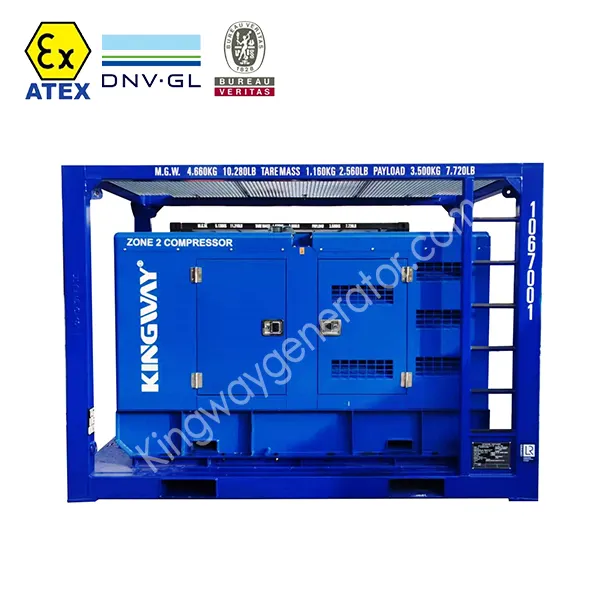The choice between diesel and gas as a fuel source for a generator depends on several factors, such as the intended use of the generator, the availability and cost of fuel, and the efficiency and durability of the generator itself.
Here are some considerations to keep in mind when comparing diesel and gas generators:
Efficiency: Diesel engines are generally more fuel-efficient than gas engines, meaning that they can produce more power per unit of fuel consumed. This can make diesel generators more cost-effective over the long term, particularly for heavy-duty or continuous use.
Durability: Diesel engines are typically more rugged and durable than gas engines, due to their simpler design and higher compression ratios. They are also less prone to wear and tear, which can make them a better choice for high-use applications or harsh environments.
Availability and cost of fuel: The availability and cost of fuel can vary widely depending on your location and the type of fuel you choose. Diesel fuel is generally more widely available and may be more cost-effective in some areas, particularly in rural or remote locations. Gasoline may be more readily available and less expensive in urban areas.
Environmental impact: Diesel engines are generally more fuel-efficient and produce less greenhouse gas emissions than gas engines, but they can emit higher levels of nitrogen oxides and particulate matter. Gas engines, on the other hand, produce lower levels of these pollutants but are generally less fuel-efficient.
Noise level: Diesel generators are typically louder than gas generators, due to the higher compression ratios of their engines. This can be a consideration if you plan to use the generator in a residential or other noise-sensitive area.
Ultimately, the choice between diesel and gas as a fuel source for a generator will depend on your specific needs and circumstances. It is important to carefully evaluate the pros and cons of each option and to consider factors such as fuel availability, efficiency, durability, and environmental impact when making your decision.
Diesel Generators – Advantage & Disadvantages
Diesel generators can be a reliable and cost-effective source of power in a variety of settings, but like any technology, they have their advantages and disadvantages.
Here are some of the main pros and cons of using diesel generators:
Advantages:
Fuel efficiency: Diesel engines are more fuel-efficient than gasoline engines, which means they can provide more power for less fuel. This can lead to lower operating costs over the long term.
Durability: Diesel generators are generally more durable and longer-lasting than gasoline generators. They have fewer moving parts and operate at lower temperatures, which can reduce wear and tear and prolong the lifespan of the equipment.
Lower fire hazard: Diesel fuel is less flammable than gasoline, which reduces the risk of fire or explosion in the event of a leak or spill.
High power output: Diesel generators are capable of producing a high level of power, which makes them ideal for use in heavy-duty or industrial applications.
Easy to maintain: Diesel generators are relatively easy to maintain, with fewer components to service and replace than gasoline generators.
Disadvantages:
Higher initial cost: Diesel generators are generally more expensive to purchase than gasoline generators, which can make them less accessible for smaller businesses or individuals.
Noise and emissions: Diesel generators can be noisy and produce emissions that may not meet local environmental standards. They may not be suitable for use in residential or urban areas.
Fuel storage and safety: Diesel fuel must be stored safely and securely to prevent leaks, spills, or other hazards. This may require additional infrastructure and safety measures.
Cold weather performance: Diesel generators can be difficult to start in cold weather, which may limit their usefulness in some climates.
Maintenance costs: While diesel generators are relatively easy to maintain, they can be more expensive to repair and replace parts compared to gasoline generators.
In summary, diesel generators can be an efficient and reliable source of power for a wide range of applications, but they may not be suitable for everyone. It is important to carefully consider the pros and cons of diesel generators before making a decision, taking into account factors such as cost, noise, emissions, and safety.

